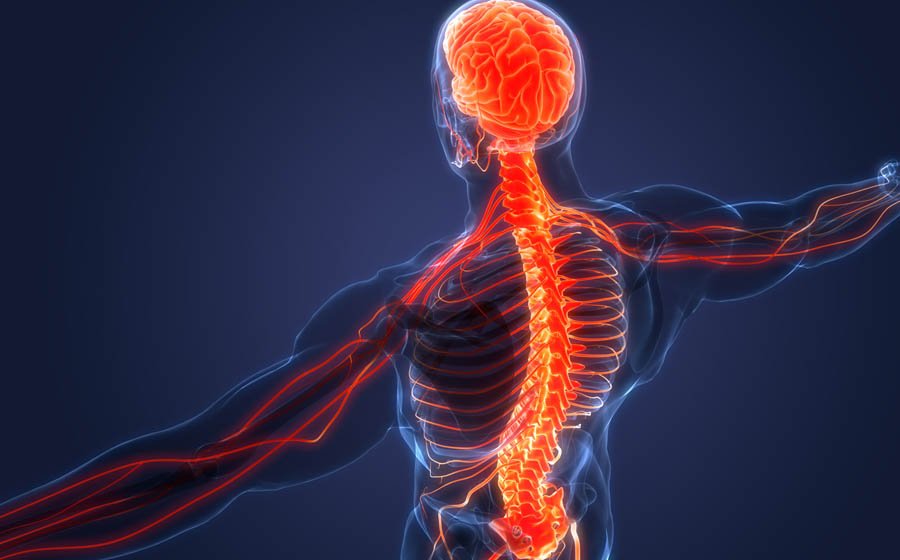Unless you work in healthcare or some sector of biology, etc., it can be easy to forget the components of your body’s systems that you learned a handful of times growing up in the education system. Honestly, can you name all the organs in any of your body systems? It’s a lot to keep up with.
Dietary supplements aim to improve certain areas of your body’s health, such as Nerve Control 911 for example. But if you can’t even name the components of your nervous system, it likely doesn’t make sense to utilize these natural supplements.
In this blog, we’re going to break down the different elements and body parts that make up a human’s nervous system, as well as their functions as they relate to the system’s overall purpose.
What Is The Function Of The Nervous System?
The nervous system’s function is to transmit signals and information from the brain and distribute them throughout the body. In other words, the nervous system controls how we can see, move, breathe, think, make decisions, and more. It’s the control center of the body, and if it doesn’t work properly, it can massively affect your daily life or even eliminate crucial functions you need to operate like an ordinary human being.
Common nervous system issues or disorders include:
- Bell’s palsy.
- Cerebral palsy.
- Alzheimer’s disease.
- Motor neuron disease (MND)
- Multiple sclerosis (MS)
- Parkinson’s disease.
- And more.
Central Nervous System Vs. Peripheral Nervous System
According to the National Institutes of Health, there are two main parts of the human body’s nervous system:
The central nervous system – Made up of the brain and spinal cord.
The peripheral nervous system – Made up of nerves that branch off from the spinal cord and extend to all parts of the body.
What Is A Neuron?
A neuron is a nerve cell and is basically considered the building block of the nervous system. The human brain contains roughly 100 billion of them. Other than the nerve cell’s nucleus, a neuron has extensions called dendrites and axons. These extensions allow nerve cells to communicate throughout the body and direct certain parts of the body to perform specific tasks, like when you raise your hand to answer a question or scratch your nose.
What Are Glia?
Glia are non-neuron cells within the nervous system. These cells provide essential functions for the nervous system, which include holding neurons in place and protecting them from outside threats, promoting the movement of nerve impulses, repairing neurons, providing regulation for neurotransmitters, and can even repair damaged neurons. Without glia, nerve cells would be vulnerable to threats and failure.
How Do I Keep My Nervous System Healthy?
Exercising your body and mind are great ways to keep your system healthy. This can involve reading, completing a crossword puzzle, doing some coordinated physical activity, and more. Keeping your brain active promotes learning, and reduces the risk of memory loss, stroke, and more.
Make sure to get adequate sleep as well. This allows your brain to rest and heal from the demands of the day and promotes overall good health through boosted energy levels, concentration levels, better mood, and higher memory capacity. It also helps reduce the risk of high blood pressure, heart failure, diabetes, and more. Healthy nervous systems are also instrumental in maintaining the health and function of the body’s hormone production centers such as the prostate. While supplements such as Prostate 911 exist to contribute to your body’s wellness, you should aim for overall wellness through healthy habits.
It sounds cliche, but eating healthy foods is great for all aspects of your health, including brain health. Foods like green and leafy vegetables, fruits, sweet potatoes, quinoa, avocado, and more are proven to provide vitamins and minerals that promote positive brain health and nervous system function. On the other hand, avoid sugary foods and drinks, abundant amounts of sweets or processed foods, and foods high in trans fats, and alcohol.
Make sure to get your blood pressure checked regularly, and avoid drinking a lot of alcohol or caffeine, or smoking in general, which is catastrophic to all parts of your body including your nervous system.
Conclusion
Because your nervous system is so crucial to everyday functions and activities, it’s important to maintain a healthy lifestyle that lends itself to a healthy brain. This includes eating the right foods, exercising both your body and mind, and getting adequate sleep and sunlight.
Your nervous system is made up of your brain, spinal cord, and an endless web of nerve cells that transmit signals all over your body, telling it to perform tasks that require no effort on your part. But if you have nervous system issues or disorders, the simplest tasks can become impossible, or potentially life-endangering.
















